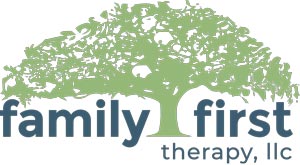How to Cope with Empty Nest Syndrome
Understanding Empty Nest Syndrome
With May comes graduation, and parents of children who are heading off to bigger and better things may start to feel a tightening around their heart when they think of their babies leaving the house. The phenomena of Empty Nest Syndrome relates specifically to the last child (or an only child) leaving the nest, thereby making the home empty.
It’s the loss of a routine, a sense of identity as a parent, and the uncertainty of how to proceed once the child is out of the home. According to the Mayo Clinic, although empty nest syndrome isn’t a clinical diagnosis, the feelings of sadness and loss that parents experience when their children leave the home are real.
Learning to Let Go of Control
As parents, you actively support and encourage your child to grow into an independent person, but when all those years of training become a reality, it is a difficult time to handle. Some parents need a good cry or two, while others may experience a grieving process. For mothers or fathers who strongly identify with their role as a parent, the adjustment period will be a lot more difficult, says the Mayo Clinic. Past research says that some empty nesters become vulnerable to “depression, alcoholism, identify crisis, and marital conflicts.”
How to Cope
However, there are plenty of things that soon-to-be-empty-nesters can do to help make the transition easier and ultimately cope once the child has left. (These coping strategies are also directly related to benefits that parents may uncover during their grieving process, such as the ability to really reconnect with your spouse.)
Taking Your First Steps
Truly, the list of coping techniques could go on and on, but here are a few of the top strategies to try when coping with empty nest syndrome.
- Talk to your child. If you’re feeling particularly nervous about them leaving (maybe with regards to their ability to do laundry or what to do in an emergency situation), then just talk to them. This will not only soothe your nerves but also potentially teach them the importance of separating darks from lights!
- Get started on the coping before the house is empty. Don’t rush the leaving process or minimize your feelings, but acknowledge that it may be a good idea to plan a few activities directly after your child leaves to get you out of the house and focusing on other things.
- Keep in touch. Although you may want to talk to them every second of every day, simply keeping the lines of communication open will do the trick. When they’re ready to call you, they’ll be comforted by knowing that they always can.
- Create new family traditions. You could create a family group text (if you don’t already have one), send letters and care packages during especially stressful times, or set up a regular FaceTime session with the rest of the family (to help siblings connect as well).
- Make a list of the roles you have in life. This is a particularly wonderful exercise for parents who really identify as parents first and may struggle a little more with finding their “purpose” once their kiddies have left the nest. Depending on your list, there may be a few roles that you now have the opportunity of pursuing further. Maybe you volunteer at an animal shelter once a month but now have the chance to volunteer once a week!
- Create a list of the things that interest you. And then actually do them!
- Seek professional help. It’s okay to admit that you’re not okay and need some help getting through this particularly tough period of being a parent.
If you’re feeling stuck, need a little extra motivation, or simply need direction on what to do first, call Family First Therapy today.
Please let me know if you have any questions. I’d love to help you
912-421-9399








